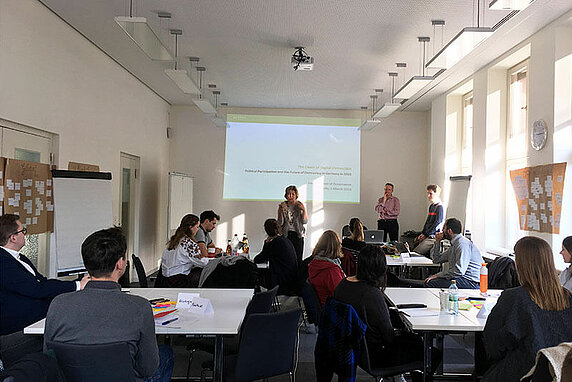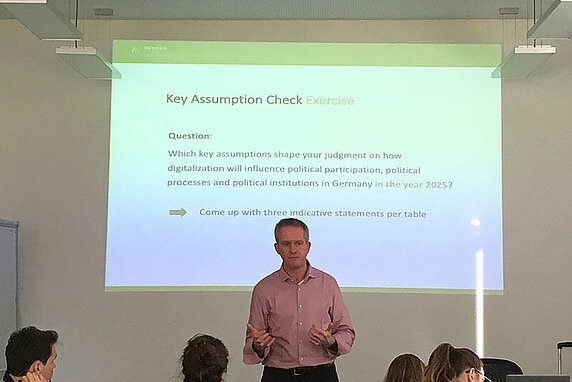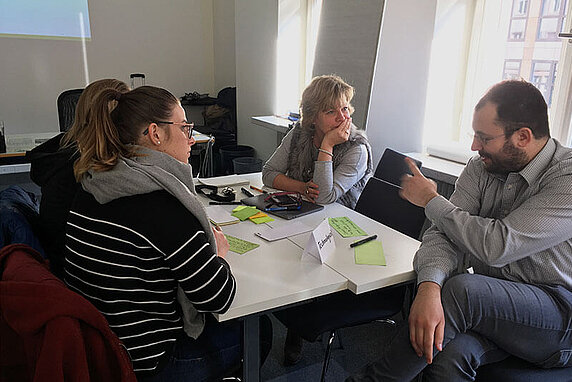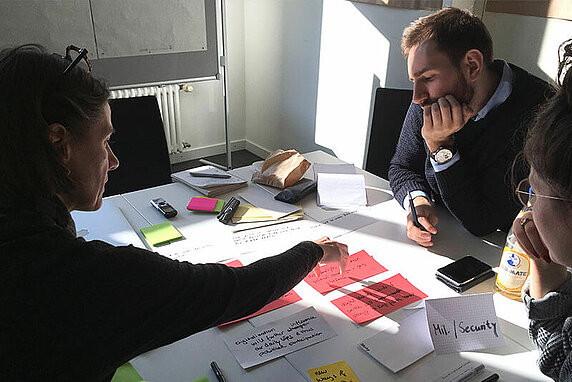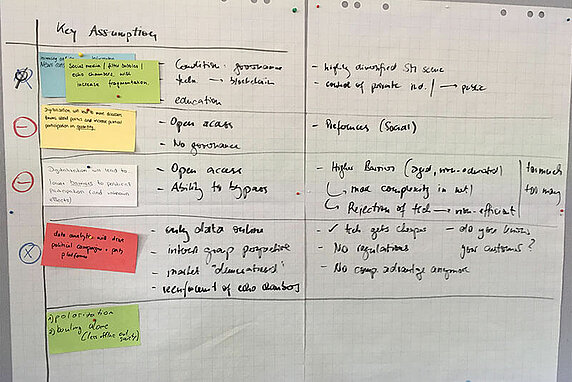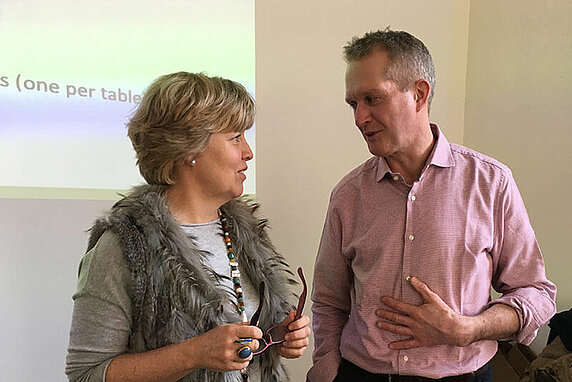Students and experts explore the future of political participation and democracy in workshop with Andrea Römmele.
Students and experts participated in a workshop on 2 March exploring how digitalisation affects democratic participation, led by Professor of Communication in Politics and Civil Society Andrea Römmele at the Hertie School. Workshop participants explored how to confront disruptive, rather than incremental, change, with a focus on Germany, focusing on how digitalisation is changing how citizens participate in democratic processes.
Such changes can already be seen in the influence of social media on recent elections, the ability of foreign governments to influence election outcomes or in gains for populist parties, such as the Alternative für Deutschland, which garnered enough votes in 2017 for representation in the German parliament. “But what will democracy look like in the year 2025 or 2030?” Römmele challenged participants to think about as the workshop began.
To tackle this question, participants first engaged in a ‘strategic foresight’ exercise. Strategic foresight is an analytical tool that involves thinking through various ways the future might unfold. The aim is not only to lower risks in decision-making using estimative analysis but to create enabling conditions for windows of opportunity.
Hertie School Guest Lecturer and Managing Director of the Berlin think-tank Bureau für Zeitgeschehen Oliver Gnad directed scenarios, in which students identified and discussed future developments in the relationship between digitalisation and democratic participation. Foresight analysis is “uncovering unknown unknowns,” explained Gnad, “You have to think the unthinkable.” Based on that, they developed different scenarios that aim to define the most notable downside risks and new trends or dynamics that might be leveraged to create new opportunities.
Questions explored were:
- What role will social media and informal networks play in forming people’s opinions in the future?
- How does digitalisation influence liberal democracy, political participation, the party system and political representation in Germany?
- How will digitalisation change the relationship between citizens, political parties, parliaments and the state?
- How will this affect legitimacy, equal opportunity and representative democracy?
- Will it widen the urban-rural or generational gaps? Or will it expand space for participation?
- Will changes come only in the form of political participation or will democratic institutions also change?
- And what role will parties play in 2025? Will they keep their role as defined by Germany’s Basic Law, or will grass-roots democracy gain influence (from representative to direct forms of political participation)
Learning proper scenario building was a big draw for MPP student Viktoria Grzymek, who was asked to build a scenario for a client in a Hertie School project course last year and realised she had yet to learn this skill. “Given everything that’s happening in the world right now, it’s important that we know how to navigate crisis landscapes,” said Grzymek. How to methodically work through and present a foresight analysis was also a draw for fellow MPP student Gesine Höltmann, who is currently pursuing a professional year at the German Council on Foreign Relations and plans to write her thesis on representation within the German democratic system.
Around 30 Hertie School students participated, alongside outside experts and practitioners, bringing experience from a variety of backgrounds and nationalities. Their input will feed into research for a book project exploring the long-term consequences of the new digital age – especially as a factor of globalisation and how this is changing political representation, participation, affiliation, processes and institutions.
-
Andrea Römmele is Professor for Communication in Politics and Civil Society at the Hertie School. Her research interests are comparative political communications, political parties and public affairs.

